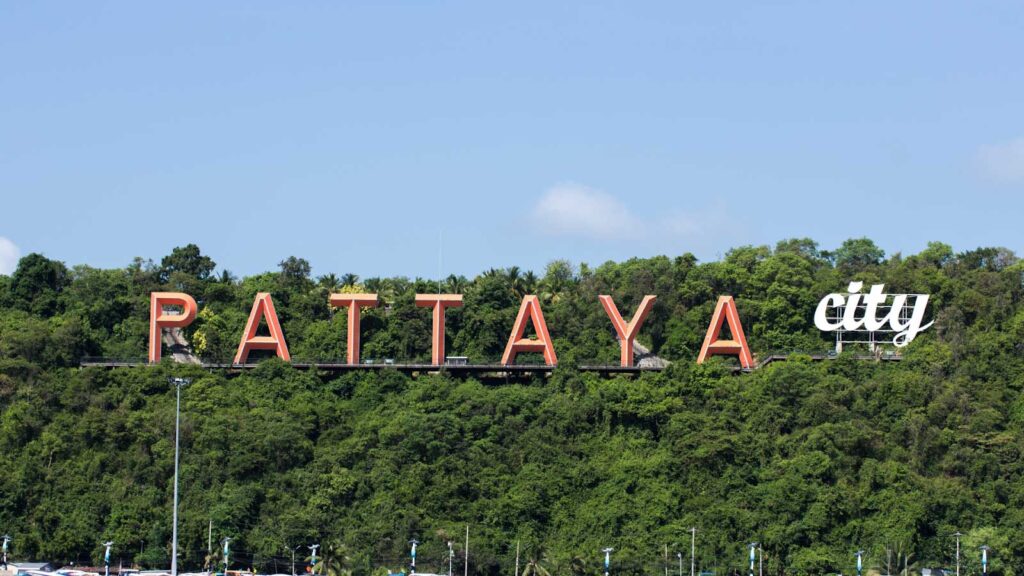

Thailand has long been a hotspot for digital nomads due to its affordable living, stunning landscapes and strong internet infrastructure. It has a variety of locations that are perfect for the digital nomad lifestyle. Here are the top 4 cities where digital nomads thrive in Thailand.
1. Bangkok – The Ultimate Urban Hub

Bangkok, Thailand’s capital is a top destination for digital nomads who love the energy of a fast-paced city. With world-class amenities, a diverse food scene and endless opportunities for networking. Bangkok is perfect for those who seek both work and play.
- Cost of Living: While it’s more expensive than other parts of Thailand, Bangkok offers a wide range of living options. A one-bedroom apartment can cost between $300 to $1,200 per month, depending on the area.
- Internet & Coworking Spaces: Bangkok boasts reliable and fast internet making it ideal for remote work. The city is home to numerous coworking spaces like WeWork, The Hive, and HUBBA catering to various needs and budgets.
- Lifestyle: Bangkok is a mix of modern skyscrapers, cultural sites and lively markets. Digital nomads will find a balance between working in trendy cafes and exploring cultural gems like the Grand Palace and Wat Pho. For leisure the city offers rooftop bars, art galleries and shopping districts.
2. Chiang Mai – Digital Nomad Haven

Chiang Mai is often referred to as the digital nomad capital of Southeast Asia. This northern city is known for its peaceful environment, affordable living and a strong nomad community.
- Cost of Living: Chiang Mai is significantly cheaper than Bangkok. Rent for a one-bedroom apartment ranges from $250 to $600 per month, making it a great choice for budget-conscious nomads.
- Internet & Coworking Spaces: Despite its slower pace of life Chiang Mai offers fast, reliable internet. The city has a thriving coworking culture with spaces like Punspace and Alt_Chiang Mai catering to freelancers and entrepreneurs.
- Lifestyle: Chiang Mai offers a relaxed lifestyle surrounded by nature. Digital nomads can enjoy weekend getaways to nearby mountains or explore the city’s many temples and local markets. The city is also a hub for wellness activities including yoga and meditation retreats.
3. Phuket – Beachside Living with Strong Connectivity

For digital nomads who dream of working by the beach Phuket offers the perfect blend of sun, sea and strong infrastructure. This large island attracts a wide range of expats and nomads making it easy to find like-minded individuals.
- Cost of Living: While more expensive than Chiang Mai, Phuket offers a range of living options with beachside apartments starting around $500 per month. Nomads can live comfortably on $1,500 to $2,000 per month.
- Internet & Coworking Spaces: Phuket is well-equipped with fast internet and coworking spaces such as Garage Society and Hatch Coworking Space. Many beachside cafes also offer Wi-Fi for those who prefer a more relaxed working environment.
- Lifestyle: With its tropical beaches, vibrant nightlife and outdoor activities like diving and surfing, Phuket offers a perfect work-life balance. Digital nomads can explore nearby islands, enjoy local Thai cuisine and partake in the island’s active social scene.
If you’re considering property in Phuket for your personal use or as an investment, our Nebu Resort Residences Bang Tao, Phuket project is a perfect choice for digital nomads. Conveniently located just 24 minutes from Phuket Airport, 24 minutes to Blue Canyon Country Club and 12 minutes to Layan Beach.
4. Pattaya – Coastal City with Easy Access to Bangkok

Pattaya has evolved from a tourist hotspot to a growing destination for digital nomads. Its coastal charm, combined with proximity to Bangkok (just a 90-minute drive) makes it a convenient choice for those looking to balance work and leisure.
- Cost of Living: Pattaya is more affordable than both Bangkok and Phuket. Rent for a one-bedroom apartment starts at around $300 to $600 per month with overall living costs being lower for a coastal city.
- Internet & Coworking Spaces: The city is catching up with digital nomad demand with coworking spaces like Phanom Space and cafes with reliable internet now more accessible.
- Lifestyle: Pattaya is known for its beaches, water sports and vibrant nightlife.It’s also becoming more family-friendly and community-oriented. Digital nomads will find plenty of places to relax, whether at beach clubs or nearby islands like Koh Larn.
If you’re interested in property in Pattaya for your own stay or for investment purposes, you can explore our Nebu Resort Residences Jomtien, Pattaya project. This development is perfect for digital nomads, offering a serene environment with a coworking space, spa and well-being amenities designed to balance productivity with relaxation.

Thailand remains one of the top destinations for digital nomads, offering a variety of living experiences across its cities. Whether you thrive in the fast-paced environment of Bangkok, seek tranquility in Chiang Mai, love the beaches of Phuket or prefer the balance Pattaya offers. Each city provides the infrastructure, internet connectivity and vibrant community that digital nomads need to succeed.
For more updates about our projects, promotions, and news. Please follow us on our social media channels. Stay connected to get the latest information!
Instagram: neburesidences
Facebook: Nebu
Linkedin: Nebu
Twitter: @nebuworld_
FAQs
What makes Thailand a popular destination for digital nomads?
Thailand offers affordable living, stunning landscapes, and strong internet infrastructure. Its diverse cities provide various lifestyles and amenities suited to digital nomads.
Where do most digital nomads live in Thailand?
Most digital nomads in Thailand live in major cities like Bangkok, Chiang Mai, Phuket, and Pattaya. Bangkok is popular for its vibrant city life and extensive amenities, Chiang Mai for its affordable living and relaxed atmosphere, Phuket for its beachside lifestyle, and Pattaya for its coastal charm and proximity to Bangkok.
What is the Thailand digital nomad visa for 2024?
The Thailand Digital Nomad Visa, introduced in 2024, allows remote workers to live and work in Thailand for an extended period. Applicants must meet certain requirements, including proof of remote employment, sufficient income, and health insurance. The visa aims to attract digital nomads and contribute to Thailand’s growing remote work ecosystem.